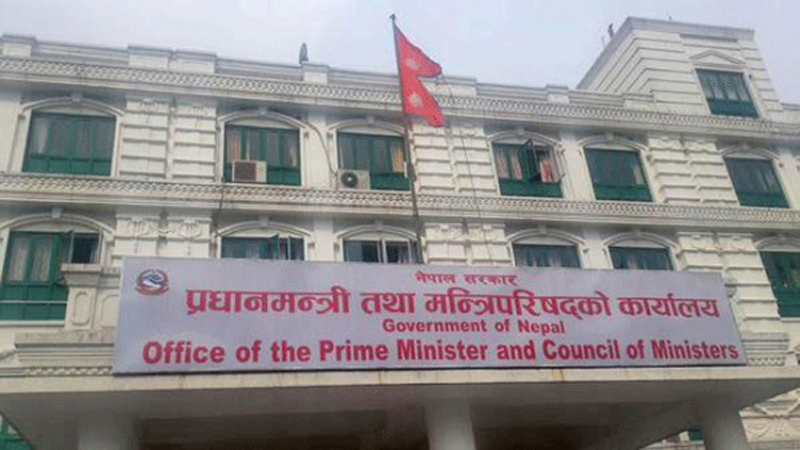
OR
Bill to bar judiciary, security agencies from taking foreign aid
Published On: April 15, 2018 05:30 AM NPT By: Republica | @RepublicaNepal

KATHMANDU, April 15: The government has proposed to bar the judiciary, constitutional bodies and security agencies from receiving direct funding from foreign donors and international non-governmental organizations
The National Integrity Policy 2074 drafted by the Office of the Prime Minister has introduced the provision of barring key authorities from receiving foreign aid from bilateral and multilateral donors by signing direct agreement with them.
The new provision has been introduced at a time when all government offices including the security agencies, constitutional bodies and courts were receiving huge amount of foreign aid. Critics were vocal that the foreign aid could influence the decision-making process of the influential government bodies.
Until now, non-governmental organizations have been investing billions of rupees in all government organizations directly. Critics had been demanding to keep crucial organizations such as security forces, courts and constitutional bodies away from the influence of INGOs.
Concerned over the growing foreign aid to crucial government offices, newly-appointed Law Minister Sher Bahadur Tamang had stressed on the need of halting foreign aid in judiciary. Minister Tamang recently revealed that the judiciary had received Rs 4.5 billion legal assistance from the donors in 2016. A large amount of aid, according to the minister, was spent on foreign visits of judicial staffers.
The policy, which is yet to be endorsed by the government, has also proposed barring members of constitutional bodies from going abroad to attend functions of INGOs and other activities without the consent of the government. Even if some members of the constitutional bodies want to go abroad on their own, they have to seek prior approval from the Ministry of Foreign Affairs, states the draft proposal obtained by Republica.
The policy drafted after KP Oli came to power has stressed on the need to strictly bar justices from receiving perks and facilities other than provisioned in the law. The draft has proposed tough provisions for government officials, diplomats, ministers, lawmakers and members of political parties not following the laws.
Likewise, the draft has proposed to disqualify the ones affiliated to political parties or paying levy to political parties from taking charge of the judiciary and constitutional bodies. If he or she is recommended for court or constitutional body, the nominee should justify that he or she was never affiliated as a member of any political party nor has paid levy to the parties.
Debates have surfaced in the judiciary after former UML lawmaker Sapana Pradhan Malla and other advocates openly advocating for the party were recommended as justices of the Supreme Court.
The policy will be effective once the government amends the existing laws in accordance with the proposed draft. Before revising the existing laws, the government needs to endorse the policy and instruct the concerned bodies to act accordingly.
You May Like This

Special security to foreign investment: Foreign Minister Mahat
Kathmandu, May 5: Minister for Foreign Affairs, Dr Prakash Sharan Mahat, said that special security would be provided to foreign... Read More...

'Labor Bill, Social Security Bill crucial to improve laborer-employer relation'
KATHMANDU, May 1: Industrialists and trade union leaders are hopeful that the endorsement of Labor Bill and Social Security Bill by... Read More...

Seasonal influenza taking toll on Barpak, killing one, taking over 300 others ill
KATHMANDU, August 16: Common cold and seasonal influenza that has spread for the past 10 days has taken its toll on... Read More...




Just In
- Health ministry to conduct ‘search and vaccinate’ campaign on May 13
- Indian customs releases trucks carrying Nepali tea, halted across Kakarbhitta
- Silent period for by-election to begin from midnight
- SC issues short-term interim order to govt and TU not to take immediate action against TU legal advisor Khanal
- National consultation workshop advocates to scale up nutrition smart community in Nepal
- Patan High Court issues short-term interim order to halt selection process of NTB’s CEO
- NEPSE inches up 0.15 points; daily turnover increases to Rs 2.53 billion
- Bagmati Govt mandates tri-lingual signboards in offices














Leave A Comment